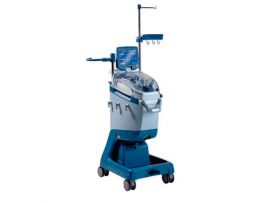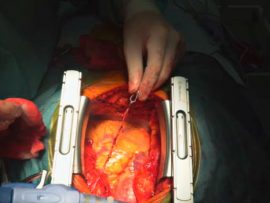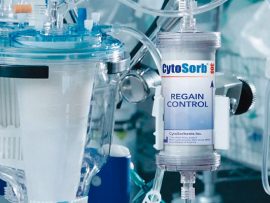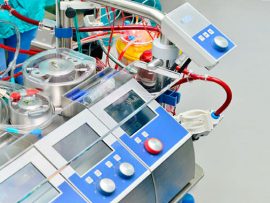Abstract Introduction: Cardiopulmonary bypass (CPB) is known to cause a systemic inflammatory and immune response. Objective: An in-vitro model of cardiotomy suction was designed to quantify the effects of incrementally increased air-blood..
Read MoreAbstract Introduction: Cardiopulmonary bypass (CPB) is known to cause a systemic inflammatory and immune response. Objective: An in-vitro model of cardiotomy suction was designed to quantify the effects of incrementally increased air-blood..
Read MoreAbstract Background Removal of cytokines, chemokines, and microvesicles from the supernatant of allogeneic erythrocytes may help mitigate adverse transfusion reactions. Blood bank–based washing procedures present logistical difficulties; therefore, we tested..
Read MoreAbstract Background and Aims: Cardiopulmonary bypass induces a systematic inflammatory response, which is partly understood by investigation of peripheral blood cytokine levels alone; the lungs may interfere with the net..
Read MoreAbstract Background On-pump cardiac surgery triggers a significant postoperative systemic inflammatory response, sometimes resulting in multiple-organ dysfunction associated with poor clinical outcome. Extracorporeal cytokine elimination with a novel haemoadsorption (HA)..
Read MoreAbstract Cardiopulmonary bypass (CPB) may trigger organs damage, including kidney injury, due to a massive cytokine release. In this observational, prospective study, we analyzed the possible impact of chronic treatment..
Read MoreAbstract Objectives: Evaluating whether there is a clinical benefit of using extracorporeal cytokine adsorption therapy in two indications. Design: Systematic review. Setting: Search on four databases, Medline, Embase, The Cochrane..
Read MoreAbstract Introduction: Halting ventilation during cardiopulmonary bypass (CPB) is implemented to operate in a less bleeding setting. It sustains a better visualization of the operation area and helps to perform the..
Read MoreAbstract The “normal” immune response to an insult triggers a highly regulated response determined by the interaction of various immunocompetent cells with pro- and anti-inflammatory cytokines. Under pathologic conditions, the..
Read MoreAbstract Multiple organ failure following a septic event derives from immune dysregulation. Many of the mediators of this process are humoral factors (cytokines), which could theoretically be cleared by direct..
Read MoreAbstract The inflammatory response in cardiac surgery using extracorporeal circulation (ECC) has been widely discussed in the literature with analysis on cytokines released in humans. To mitigate this response mainly..
Read MoreThis case reports on an a 14-year-boy (43 kg) without any respiratory symptoms, who was admitted to a regional hospital with a fever of one day associated with vomiting and..
Read MoreAbstract Background: Extracorporeal circulation (ECC) is indispensable for cardiac surgery. Despite the fact that ECC causes non-physiological damage to blood components, its pathophysiology has not been fully elucidated. In our..
Read MoreAbstract Patients undergoing coronary revascularization with extracorporeal circulation or cardiopulmonary bypass (CPB) may develop several biochemical changes in the microcirculation that lead to a systemic inflammatory response. Surgical incision, post-CPB..
Read MoreAbstract Introduction We aimed to compare the inflammatory cytokines levels of the miniaturized and conventional extracorporeal circuit system. The miniaturized extracorporeal circuit system may be fewer possible inflammation-induced or blood..
Read More












